
Politics
12:34, 23-Mar-2018
Lone Dapchi girl in captivity will 'not be abandoned', promises Nigerian president
CGTN
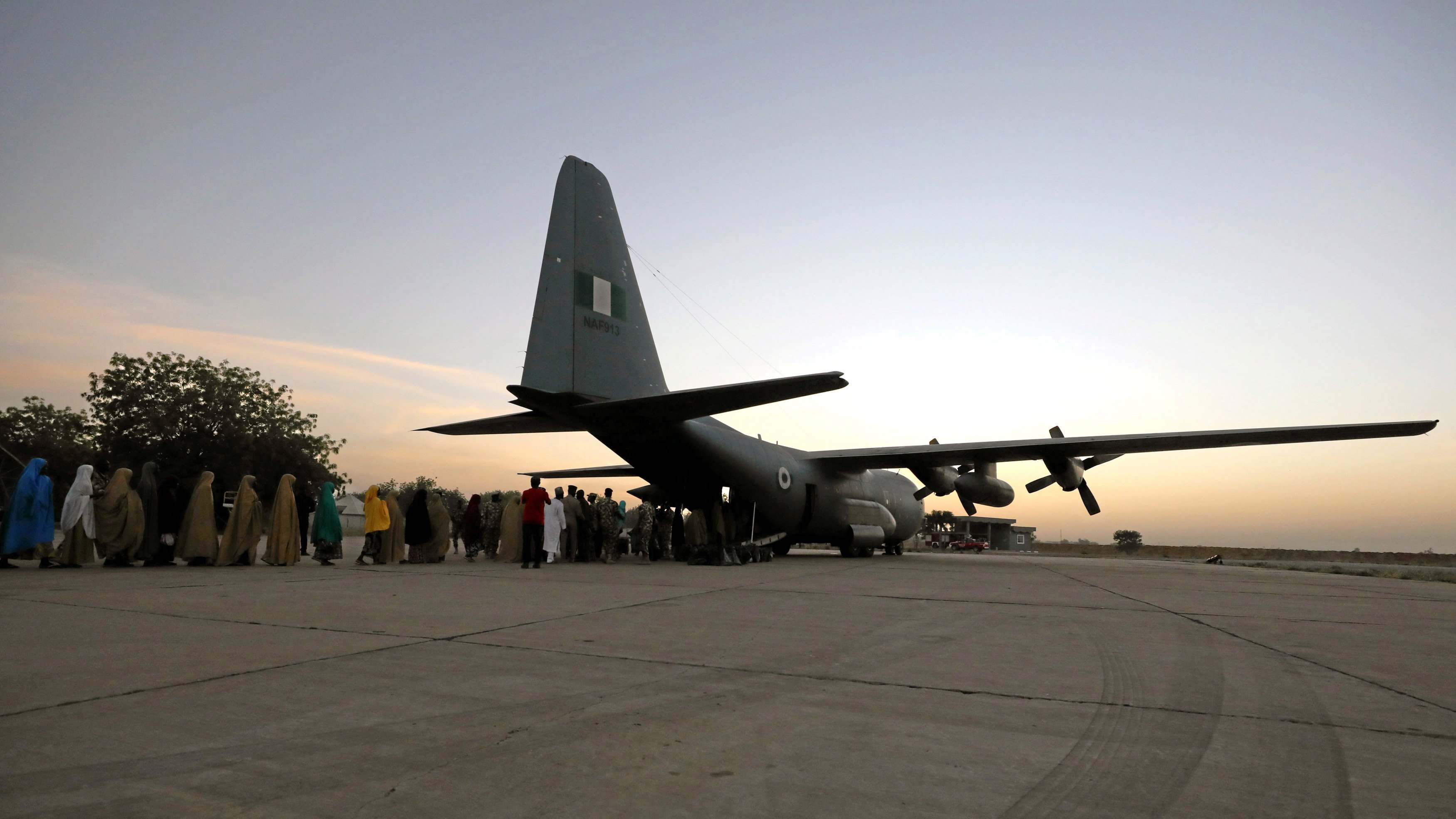
The Nigerian government has said it is committed to freeing the only Dapchi girl still in captivity by Boko Haram, after militants returned 104 of her schoolmates on Wednesday.
Leah Sharibu is one of 110 schoolgirls kidnapped in Dapchi, northeast Nigeria, just over a month ago. Boko Haram fighters refused to free the girl, a Christian, because she would not convert to Islam.
The remaining five girls reportedly died during captivity.
"President [Muhammadu] Buhari is conscious of his duty under the constitution to protect all Nigerians, irrespective of faith, ethnic background or geopolitical location and will not shirk this responsibility," Senior Special Assistant to the President on Media and Publicity Garba Shehu said in a statement.
"The lone Dapchi girl, Leah, will not be abandoned."
Information Minister Lai Mohammed told reporters in Maiduguri, the capital of Borno state, that apart from "104 Dapchi schoolgirls, one other girl and a boy were freed by insurgents in the early hours of Wednesday."
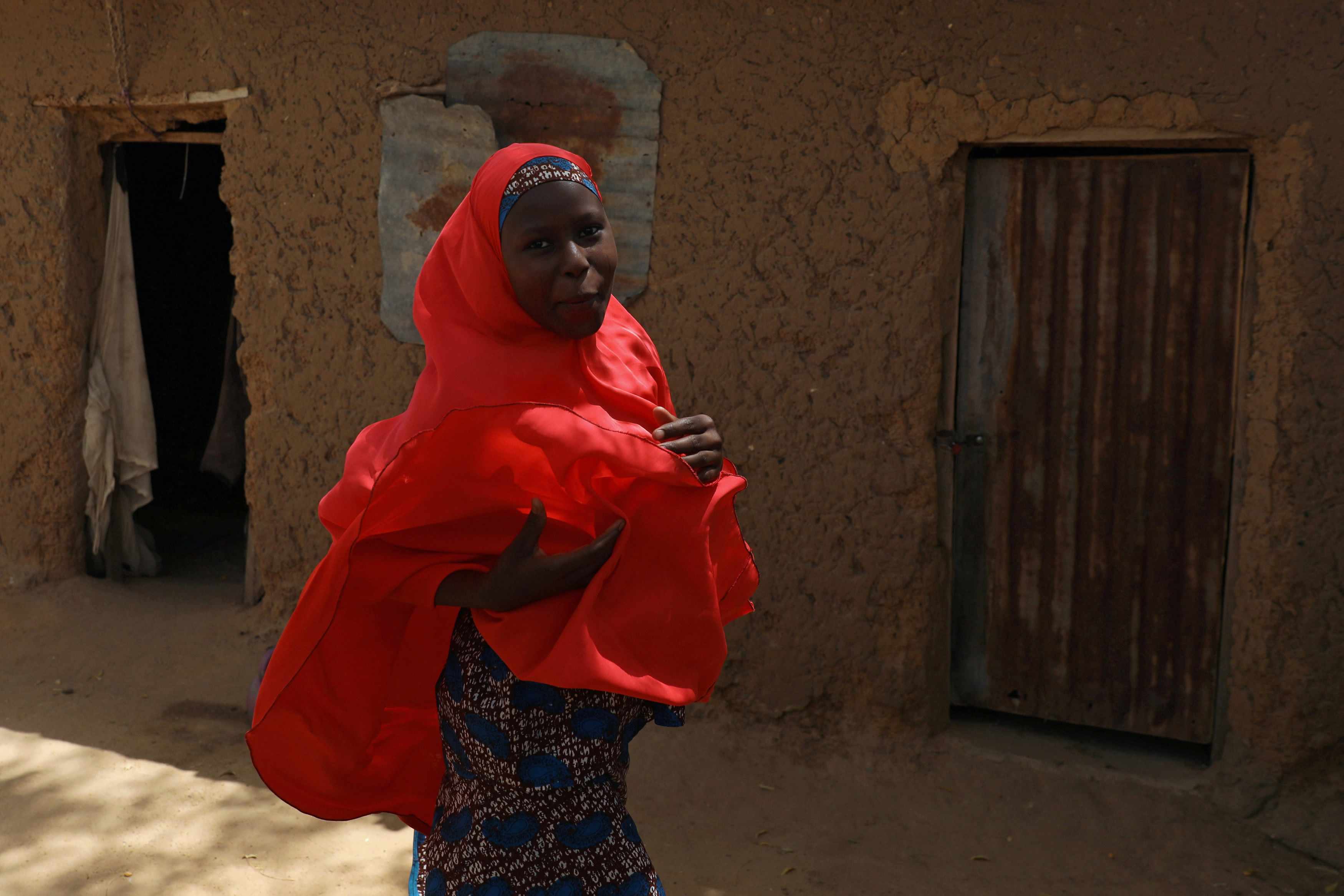
The sister of one of the newly released Dapchi schoolgirls is pictured in Dapchi, in the northeastern state of Yobe, Nigeria, March 22, 2018. /Reuters Photo
The sister of one of the newly released Dapchi schoolgirls is pictured in Dapchi, in the northeastern state of Yobe, Nigeria, March 22, 2018. /Reuters Photo
He said all the 106 persons were freed "unconditionally," amid media reports that the Nigerian government paid a ransom to Boko Haram and agreed on a prisoner swap.
The girls were later handed over to a four-member federal government including the minister and immediately airlifted to Abuja aboard a military transport plane.
Incomplete joy
The parents of one of the schoolgirls, Kachalla Bukar, said Boko Haram militants shook hands and took pictures with them before leaving. Another parent, Alhaji Deri, said the remote town in Yobe state was "crowded with people celebrating" as word spread of the return of the girls.
Fatima Gremah, 13, who was among those released, told reporters: "Boko Haram said we were lucky we were young and also Muslims."
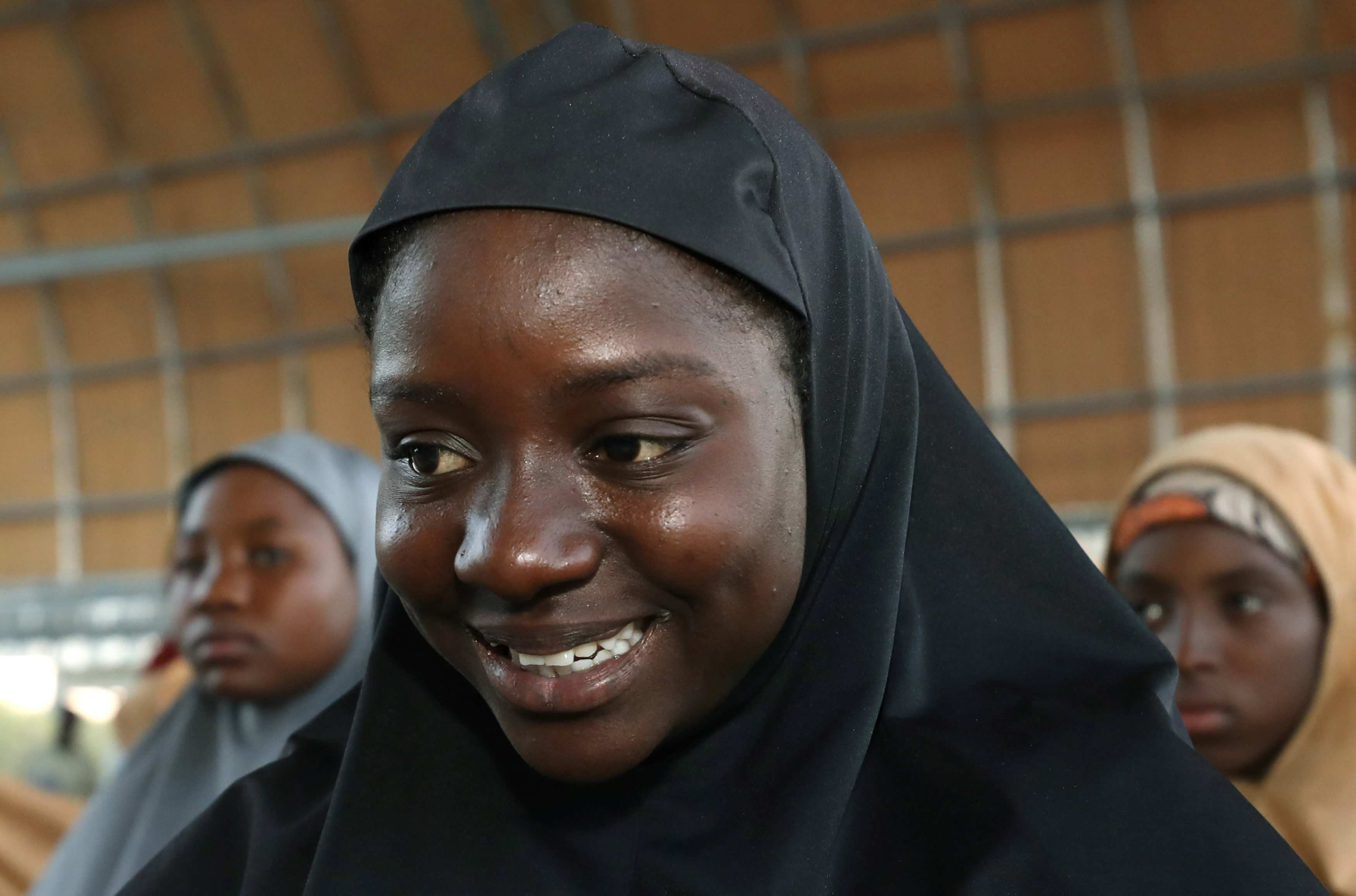
Some of the newly released Dapchi schoolgirls wait to board a plane at
the air force base in Maiduguri, Nigeria, March 21, 2018. /Reuters Photo
Some of the newly released Dapchi schoolgirls wait to board a plane at the air force base in Maiduguri, Nigeria, March 21, 2018. /Reuters Photo
"One of us who is a Christian has been left behind. They said they would keep her until she converted. If she converts, they will release her. She is the only one among us left behind."
President Buhari said last week the government had "chosen negotiation" to secure the return of the Dapchi girls rather than use military force.
Mohammed had earlier said their release was the result of "back-channel efforts" with the help of "some friends of the country", without elaborating.
'Five died en route'
The Dapchi kidnapping on February 19 brought back painful memories of a similar abduction in Chibok in April 2014, when more than 200 girls were taken.
Alhaji Deri's 16-year-old daughter Aisha said they were not mistreated during their time in captivity. But she added: "When we were being taken away, five of us died on the way."
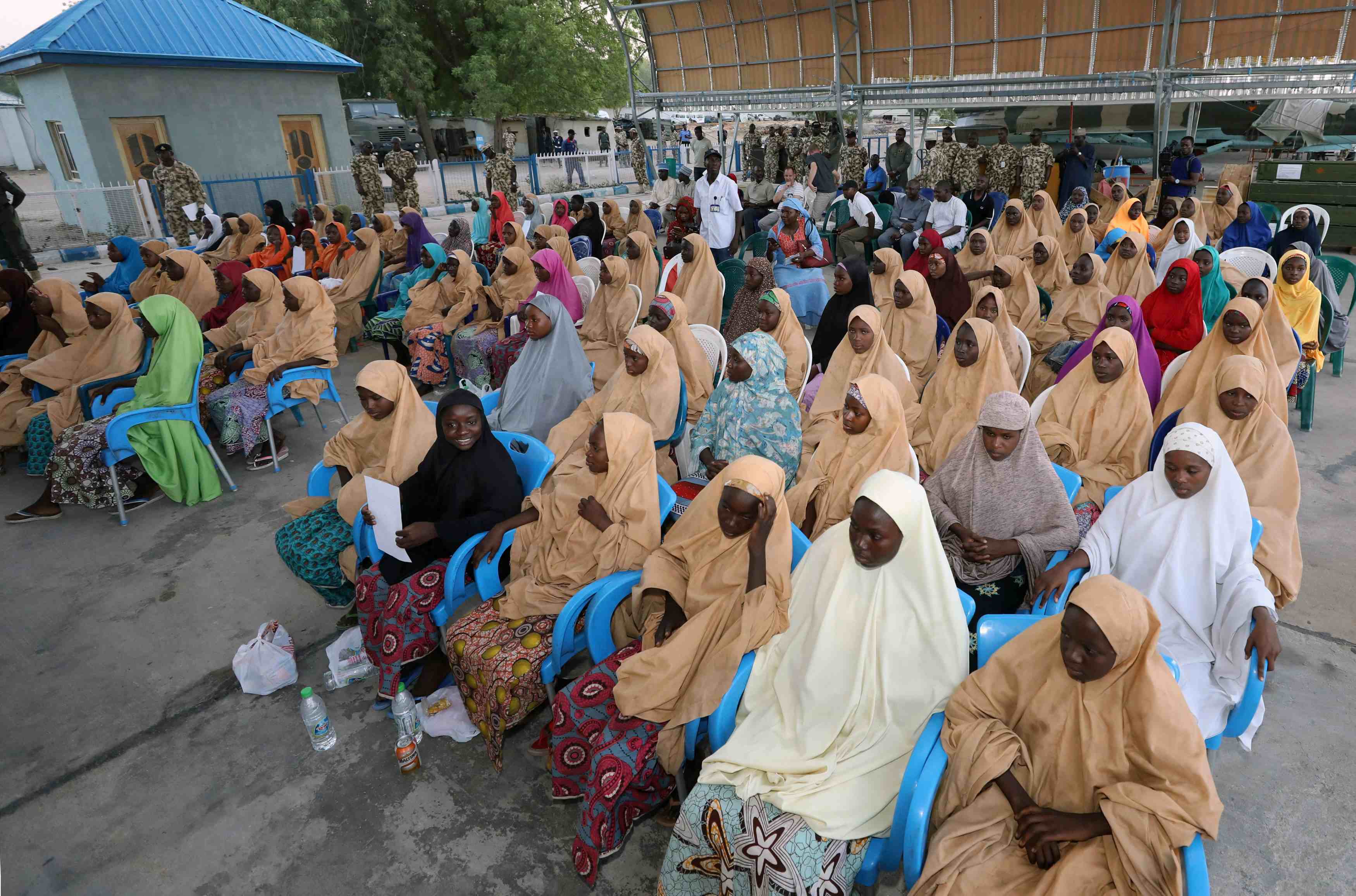
Some of the newly released Dapchi schoolgirls wait to board a plane at the air force base in Maiduguri, Nigeria, March 21, 2018. /Reuters Photo
Some of the newly released Dapchi schoolgirls wait to board a plane at the air force base in Maiduguri, Nigeria, March 21, 2018. /Reuters Photo
Fatima Gremah and another girl, Amira Adamu Mohammed, 16, both also said they were not mistreated and were given food to cook. Fatima indicated they were held on an island on Lake Chad, which is a known stronghold for fighters loyal to Boko Haram factional leader Abu Mus'ab al-Barnawi.
"They just told us on Saturday to get onto boats. We spent three days on the water before coming to shore, then they put us in vehicles and said they were taking us back home."
Kidnapping as strategy
Boko Haram has used kidnapping as a weapon of war during its nearly nine-year insurgency which has claimed at least 20,000 lives and made more than two million others homeless. The ISIL affiliate has not claimed responsibility for the abduction but given the location, Barnawi and his fighters have been blamed.
Analysts have attributed a financial motive to the Dapchi kidnapping given government ransom payments made to Boko Haram to secure the release of some of the captives from Chibok.
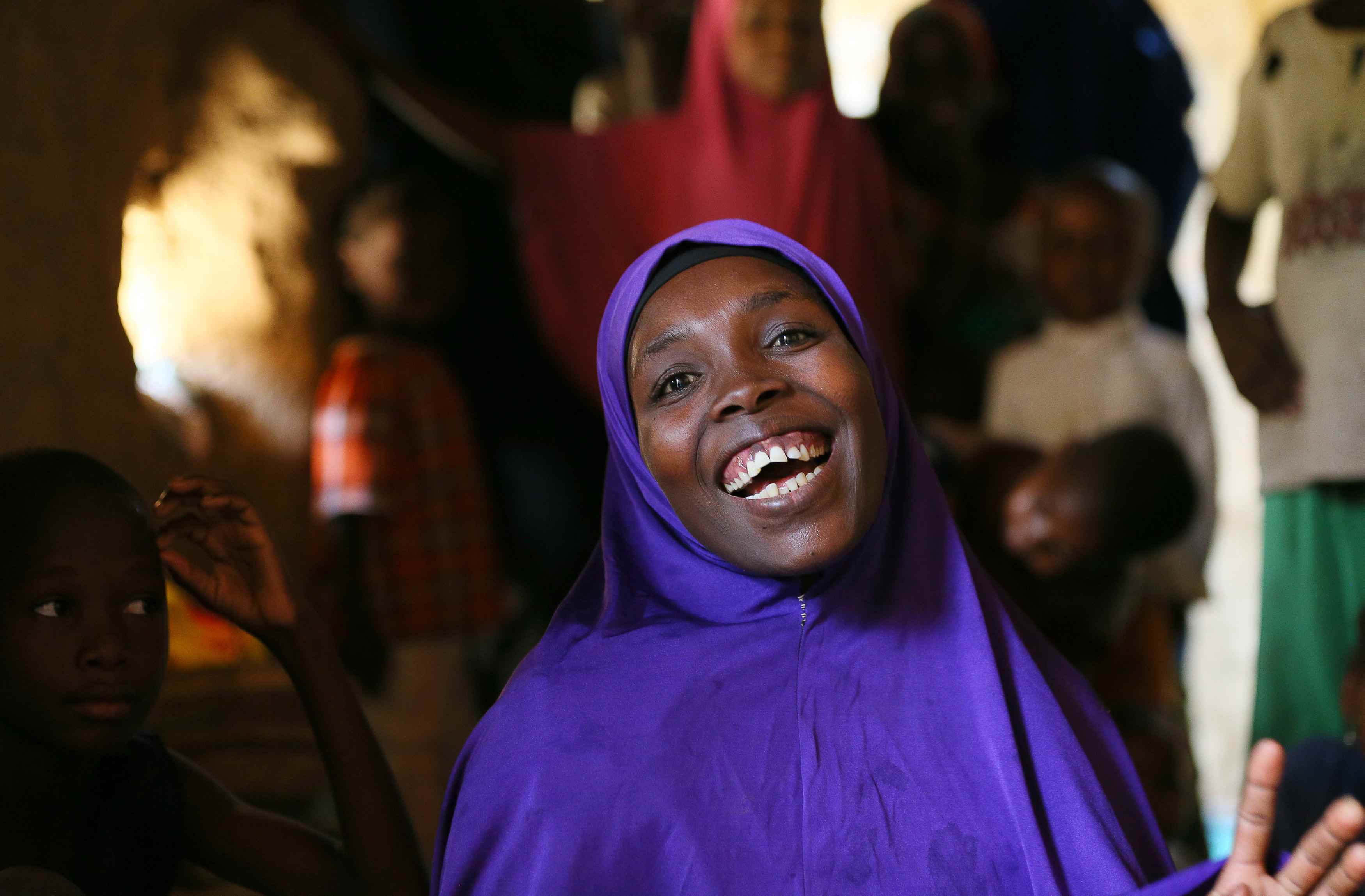
The mother of one of the newly released Dapchi schoolgirls smiles in Dapchi, in the northeastern state of Yobe, Nigeria, March 22, 2018. /Reuters Photo
The mother of one of the newly released Dapchi schoolgirls smiles in Dapchi, in the northeastern state of Yobe, Nigeria, March 22, 2018. /Reuters Photo
On Tuesday, Amnesty International claimed that the military ignored repeated warnings about the movements of Boko Haram fighters before the kidnapping. The military rejected the allegation, calling it an "outright falsehood."
Similar claims about security failings were made about the hours leading up to the abduction of 219 mostly Christian girls from Chibok, in neighboring Borno state.
That brought sustained worldwide attention on the conflict for the first time and triggered a global campaign for their release spearheaded by US former First Lady Michelle Obama. There was no similar campaign for the Dapchi girls.
Since May 2016, 107 Chibok girls have escaped, been found or been released as part of a government-brokered deal with the militants.
(With input from AFP)
Source(s): AFP

SITEMAP
Copyright © 2018 CGTN. Beijing ICP prepared NO.16065310-3
Copyright © 2018 CGTN. Beijing ICP prepared NO.16065310-3